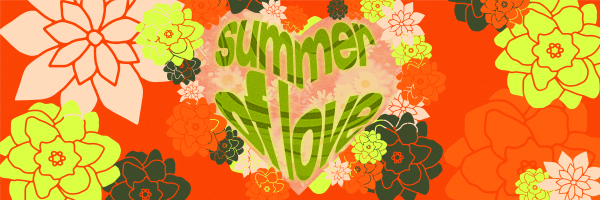Welcome to Summer Of Love: a weekly column about how people are getting back into the dating game and getting it on post-lockdown.
I was 25 years old when I made peace with the possibility that I might die a virgin. It was March 2020, around the world the pandemic was worsening and a prospect as previously benign as a weekly trip to the grocery store had become too much of a danger to indulge in. I was forced to reckon with the reality that it wouldn’t be practicable to pop my cherry before we were all consumed by COVID-19.
AdvertisementADVERTISEMENT
My chastity wasn’t a choice, at least not in the traditional sense – not a decision determined by religion, nor my own wish to wait. The necessary elements just never aligned and by then, my faith that they ever would had waned. Without a sufficient explanation to 'excuse' my lack of sexual experience, it had come to feel, certainly by my mid 20s, like a pointedly personal failure – confirmation that I wasn’t desirable – time only compounding my self-consciousness, which had calcified into crippling shame.
I was too embarrassed to confide in friends or family. Intimate discussions became feats of deflection as I blithely insisted that I was too busy to bother with finding a boyfriend. But behind this faux flippancy was fear. In reality, I’d withdrawn from the dating game altogether, less intimidated by an interminable stretch of singledom than by the idea of being honest with a partner whenever the topic of sex would present itself, not anxious about the actual act but prohibitively preoccupied with what my inexperience might imply.
Yet 16 months on, as the last stage of our unlocking signalled the start of the highly anticipated second Summer of Love, I realized that the pandemic had completely refreshed my perspective on my virginity.
For starters, the pandemic supplied us all with significantly bigger things to think about – and I don’t just mean imperilled public health. For better or worse, 2020 was a uniquely revelatory year, deepening or causing ruptures within many of our closest relationships and bringing things to light about our loved ones which we would have otherwise remained unaware of. Many of us wrestled to reconcile the kind of conduct that made us uncomfortable – belittling the social justice movements; sharing anti-vaxx memes on social media; giving credence to conspiracy theories; lacking compassion for those with Long COVID; disaffirming the effects of wealth disparity (which the pandemic indisputably highlighted); refusing to acknowledge extreme weather events as a result of climate change – in people that we thought we knew thoroughly. Compared to these kinds of revelations, my 'big secret' didn’t seem so serious. It was a simple fact – a superficial footnote – rather than a key part of my personality which, once uncovered, might encourage those around me to completely reexamine my character.
AdvertisementADVERTISEMENT
Instead, I started to see my situation as the product of equal parts passivity and circumstance. Future partners will presumably possess a much more empathetic understanding of this after fumbling through a trio of colossally cock-blocking lockdowns and social restrictions – better still, they’ll be expected (and expecting) to share their experience.
Already it’s inconceivable how much my anxieties have eased with the awareness that among the eligible there will be those who haven’t even entertained the idea of intimacy in a year and a half, if not longer. Really, though, whether they locked down optimistically with a new love, dabbled in socially distanced dating or mastered masturbating really, really quietly after moving back in with their parents, the specifics would be irrelevant. I’ve been clawing confidence from the levelling of the playing field: the guarantee that, going forward, whatever I share about myself will form part of a far more mutual exchange requiring a show of vulnerability from both parties rather than a solo admission from me. Plus, the air of ambivalence presently surrounding the singles pool suggests that everybody feels to some degree that they did pandemic dating 'wrong' – spent that extraordinary stretch either oversexed or underserved, being too proactive or too complacent – now gnawed at by the sort of neuroses that render solitude the less onerous option.
So, as I write, I’m 27 and...nope: I’m still yet to have sex. But now I’m unwilling to let that fact keep me captive any longer, closed off from cultivating connections, too coy to muster the candour they call for. The pandemic provided a pause, unprecedented and unrepeatable, in which I was able to reclaim the rationality that my insecurities had long since eliminated. I am no longer under the illusion that my virginity is the most important thing a partner will learn about me.
AdvertisementADVERTISEMENT







